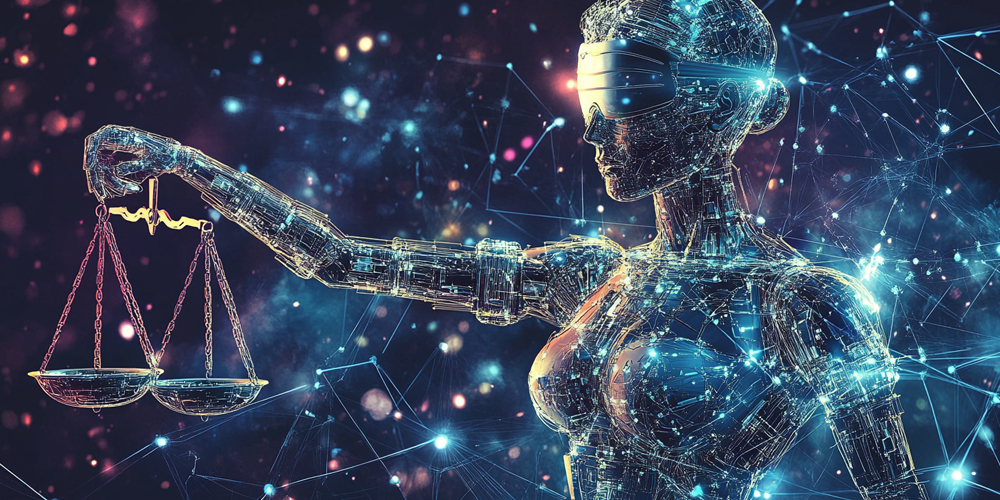Artificial Intelligence (AI) is making waves in various industries, and healthcare is no exception. The integration of AI in healthcare is revolutionizing the way patient care is delivered and managed. This article explores how AI is transforming the healthcare landscape, the benefits it brings, and the future of AI in improving patient outcomes.
Understanding AI’s Impact on Healthcare
AI’s impact on healthcare is profound, offering innovative solutions that enhance both patient care and administrative processes. From diagnostic tools to predictive analytics, AI is reshaping the healthcare experience for both providers and patients.
The Emergence of AI in Healthcare
The integration of AI in healthcare began with the development of advanced algorithms and machine learning models. These technologies have enabled significant advancements in medical imaging, genomic analysis, and patient management. AI tools are now essential in diagnosing diseases, predicting outcomes, and personalizing treatment plans.
AI in Medical Imaging and Diagnostics
One of the most impactful applications of AI in healthcare is in medical imaging. AI-powered imaging tools can analyze x-rays, CT scans, and MRIs with remarkable accuracy. These tools assist radiologists in identifying abnormalities and making faster diagnoses. For instance, AI algorithms can detect early signs of diseases like cancer, enabling timely intervention.
Enhancing Patient Care with AI
AI’s ability to enhance patient care is transformative. Through personalized medicine and predictive analytics, AI improves patient outcomes and supports more effective treatments.
Personalized Medicine and Treatment Plans
Personalized medicine uses AI to tailor treatment plans to individual patients. By analyzing genetic information and medical history, AI can predict how a patient will respond to different treatments. This approach allows for more targeted therapies and minimizes the risk of adverse effects. For example, AI-driven tools can recommend personalized drug dosages based on a patient’s unique genetic profile.
Predictive Analytics in Healthcare
AI’s predictive analytics capabilities are transforming how healthcare providers anticipate patient needs. By analyzing historical data, AI can predict potential health issues before they arise. This proactive approach enables early intervention and preventive care, improving overall patient health. For example, AI systems can predict hospital readmissions, allowing providers to implement strategies to reduce readmission rates.
AI in Administrative and Operational Efficiency
Beyond patient care, AI is streamlining administrative and operational processes within healthcare organizations. These efficiencies lead to cost savings and improved service delivery.
Automating Routine Tasks
AI is automating routine administrative tasks such as appointment scheduling, billing, and claims processing. Automation reduces the burden on healthcare staff and minimizes errors. For example, AI-driven chatbots can handle patient inquiries and appointment bookings, freeing up staff to focus on more complex tasks.
Optimizing Resource Management
AI also plays a role in optimizing resource management. Predictive analytics help hospitals manage bed occupancy, staffing levels, and inventory. By analyzing patterns and trends, AI systems can forecast demand and ensure that resources are allocated efficiently. This optimization leads to better patient care and reduced operational costs.
The Challenges and Ethical Considerations
While AI offers numerous benefits, it also presents challenges and ethical considerations. Addressing these issues is crucial for the responsible implementation of AI in healthcare.
Data Privacy and Security
AI systems rely on vast amounts of health data, raising concerns about data privacy and security. Ensuring that patient data is protected and used responsibly is a top priority. Healthcare organizations must implement robust security measures and comply with regulations to safeguard sensitive information.
Bias and Fairness in AI Algorithms
AI algorithms can unintentionally perpetuate biases present in training data. Addressing bias and ensuring fairness in AI systems is essential to provide equitable care. Healthcare providers must carefully evaluate AI tools and ensure that they are designed to serve diverse populations without discrimination.
The Future of AI in Healthcare
The future of AI in healthcare is promising, with ongoing advancements poised to further enhance patient care and operational efficiency. As AI technologies evolve, their integration into healthcare will become even more seamless and impactful.
Emerging AI Technologies
Emerging AI technologies include natural language processing (NLP) for analyzing patient records and AI-driven drug discovery for developing new treatments. These innovations will continue to shape the future of healthcare, offering new opportunities for improving patient outcomes and advancing medical research.
Collaboration Between AI and Healthcare Professionals
Successful integration of AI in healthcare requires collaboration between AI developers and healthcare professionals. By working together, they can ensure that AI tools meet clinical needs and enhance patient care. This partnership will drive the future of healthcare, leveraging AI to achieve better health outcomes for all.
Conclusion
AI is revolutionizing healthcare by enhancing patient care, improving diagnostic accuracy, and streamlining administrative processes. As AI continues to advance, its role in healthcare will expand, offering even greater benefits for patients and providers. Embracing AI’s potential while addressing its challenges will pave the way for a more efficient and effective healthcare system.







